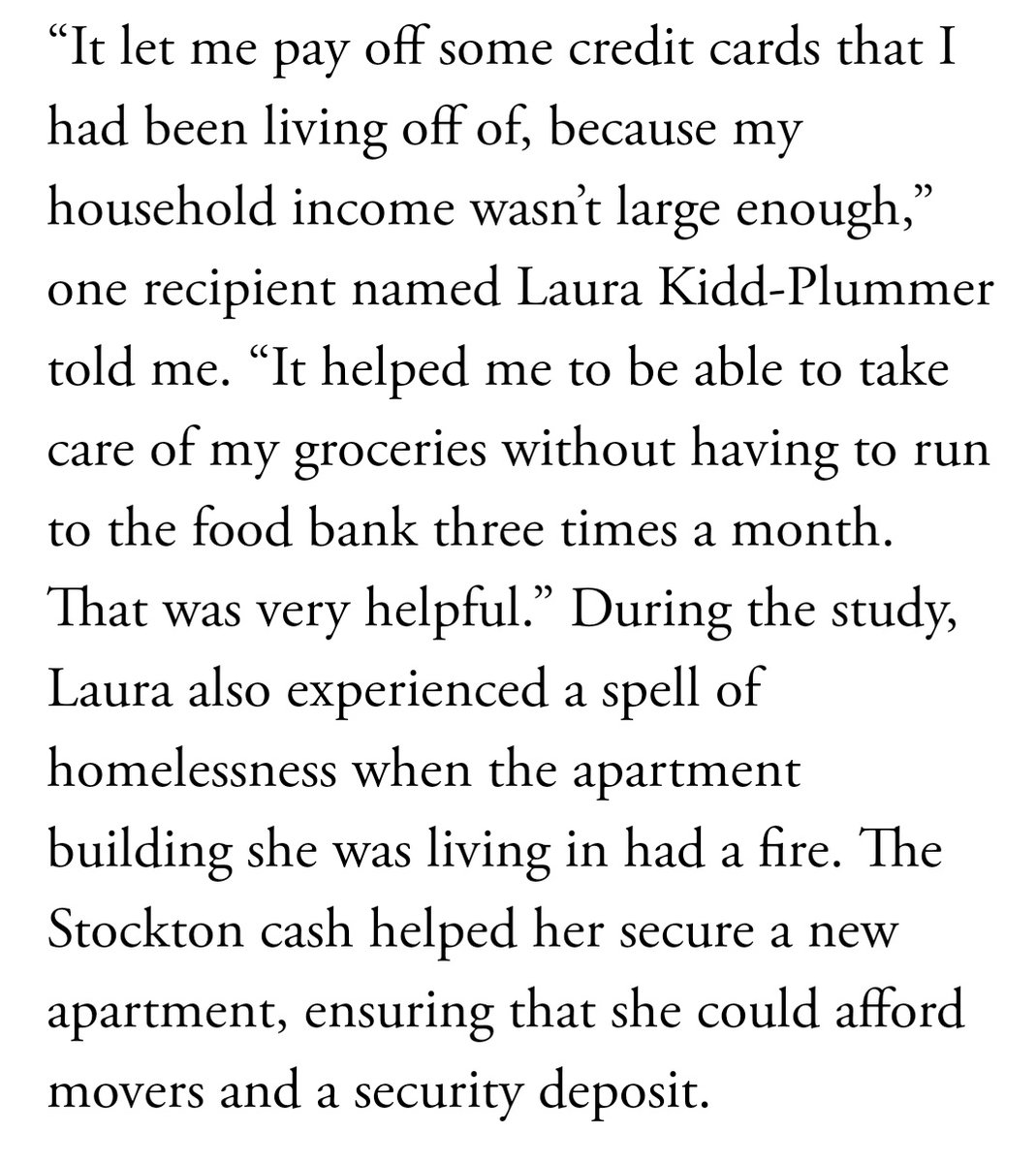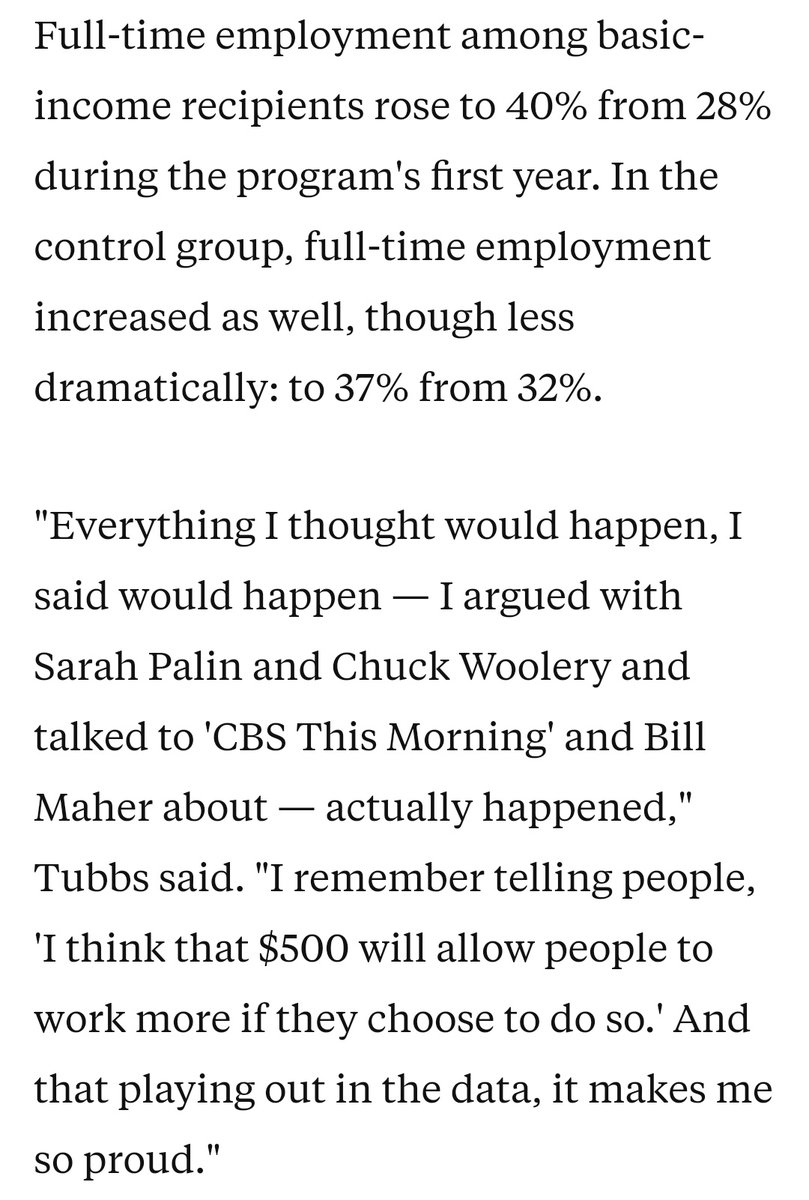
Over 10 years after the 2-year universal basic income pilot ended in Namibia, this follow-up report has been published. It includes interviews with recipients, like this one with Josef Ganeb, a bricklayer, whose business flourished during the #UBI pilot.
bignam.org/Publications/B…



bignam.org/Publications/B…




Rudolphine Eigowas is a dressmaker and her business flourished too but when the pilot ended, problems born of money scarcity returned.
"I just want that they bring back the BIG, the whole Namibia must get the BIG - the problems are not only here - the whole Namibia must get it!”
"I just want that they bring back the BIG, the whole Namibia must get the BIG - the problems are not only here - the whole Namibia must get it!”

Christian Swartbooi repaired shoes during the pilot. Over ten years later his eyesight prevents him from continuing that work and he wishes #BasicIncome would return.
“BIG was working.” His wife, Crecia, continues: “With the BIG we never had to suffer, but now we are suffering.”
“BIG was working.” His wife, Crecia, continues: “With the BIG we never had to suffer, but now we are suffering.”

Stephanus Eigowab was the local school director.
"What people bought is still there. And some still have small shops, where they sell food, those sort of businesses continue to work on a smaller scale. Other small businesses had to stop since people no longer have money to buy.”
"What people bought is still there. And some still have small shops, where they sell food, those sort of businesses continue to work on a smaller scale. Other small businesses had to stop since people no longer have money to buy.”

Johannes Goagoseb had contracted HIV a few years before the UBI pilot began, and had been imprisoned after he was caught poaching to afford his HIV meds. The UBI pilot turned his life around. After it ended, so did his life. His brother now poaches too to feed his kids. 







Sella and Alfred were able to start their own small business when the UBI pilot started.
"While the BIG was here, we continuously sold things and always kept stock. We do not have regular customers any longer, the problem is that now people do not have money to buy things."

"While the BIG was here, we continuously sold things and always kept stock. We do not have regular customers any longer, the problem is that now people do not have money to buy things."


Emilia Garises: "BIG was the best of all. BIG was actually not only N$100. If you are five people in the household, then that amounts to N$500... Some people are afraid, BIG would make us lazy, but how can income make you lazy? It is the other way around: BIG pushes you forward." 







The biggest success story of all is widely regarded as being Frieda Nembwaya who started her own bakery as soon as she got her first UBI payment. All these years later, her biz remains:
“The BIG was good, this is why I am where I am now. If you have nothing, where can you start?



“The BIG was good, this is why I am where I am now. If you have nothing, where can you start?


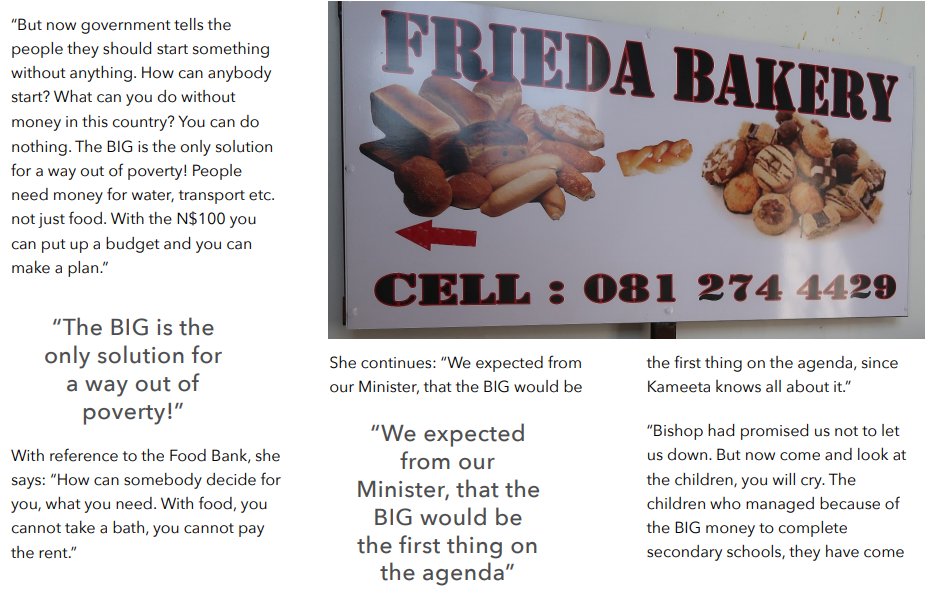
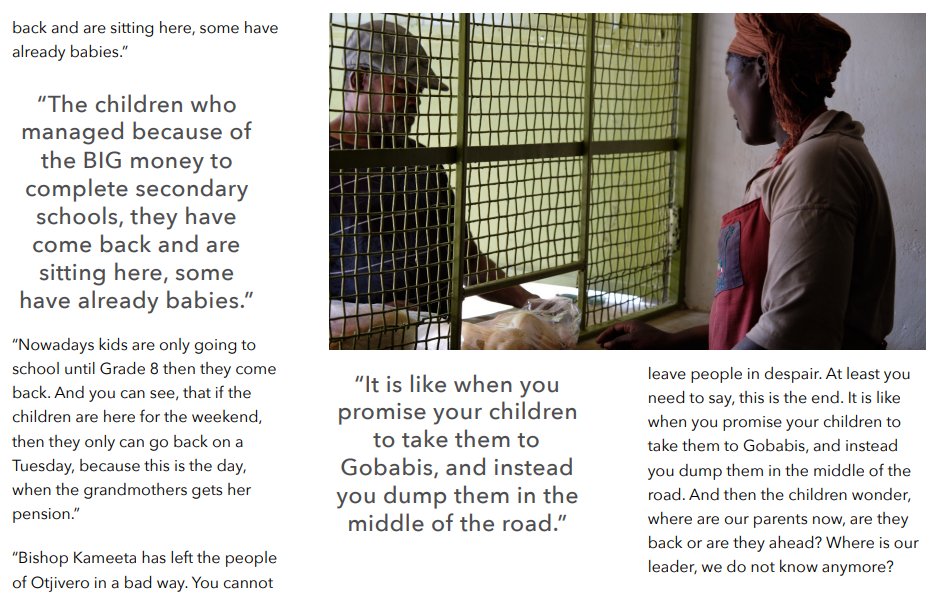
Frieda also experienced other forms of assistance. She was given goats by Germany, which she describes as not helping anything at all. With no nearby grazing, they were useless except for eating. Money is what helps people, and she believes the government damn well knows that. 

Having reached the end of this report, one thing rings through the entire thing. Those who were part of the UBI pilot want it back, and they're extremely disappointed in Bishop Kameeta for becoming the Minister of Poverty Eradication, but not introducing UBI yet as they'd hoped. 
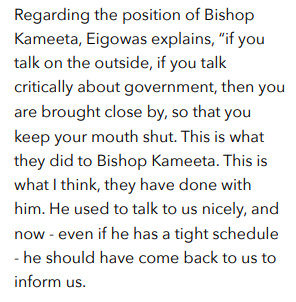
• • •
Missing some Tweet in this thread? You can try to
force a refresh







